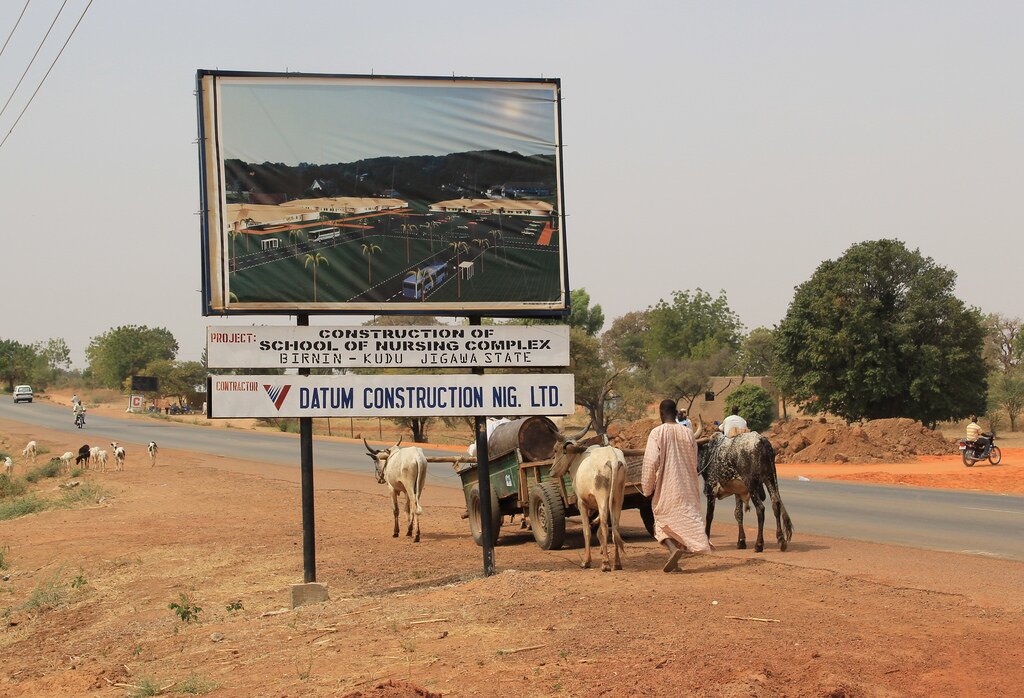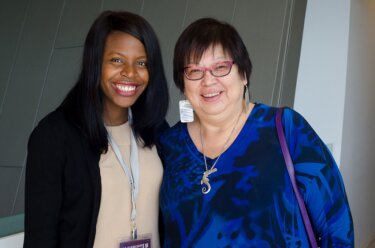Energy access could power conflict resolution dialogue in Nigeria
Working on Nigeria's electricity crisis would reduce cultural violence and conflict over resources, says one young female energy leader

Securing access to modern energy is crucial for development and has a critical role in conflict resolution dialogue. Use of renewable sources is not just an environmental and climate change concern: it has serious implications in violence escalation or in peace-building processes. Energy access serves as a prerequisite to underpin economic and prosperity growth.
“Energy access reduces conflicts. What is the backbone of most conflicts? Clean and reliable supply of energy. We need to start talking about energy as a conflict resolution tool in developing countries,” stressed Nkiruka Avila, a PhD student in the Energy and Resources Group at UC Berkeley, California.
The 26-year-old Nigerian engineer attended April 2016’s OpenAccess Energy Summit, hosted by the Waterloo Global Science Initiative (WGSI) in Waterloo, Ont.
What if the school where more than 200 girls were kidnapped by Boko Haram in Chibok, Nigeria had electricity, asks Avila? “Maybe the schools would be more secure, maybe they [would have] had more economic development, or maybe people would have more assurance knowing that their kids would get back home safely. For two years, those girls [have been] missing and energy is a huge component of that,” she argues.
The abduction of the students in April 2014 in the northeast of Nigeria was part of an ongoing conflict that has killed 15,000 people and displaced 2 million.

A war for resources in areas with no grid connection
“We’re talking about how energy is so interconnected. We’re seeing a war for resources. People in the north are displaced due to climate change, loss of agricultural yields, and no economic activities. It’s all about energy,” stresses Avila.
Overcoming energy poverty is one of sub-Saharan Africa’s greatest challenges. Vulnerability and conflict in regions like northern Nigeria are intrinsically linked to lack of electricity grid connection.
As the most populous country in Africa (180 million inhabitants), Nigeria has the second-largest economy on the continent and is the number one African oil producer. Notwithstanding, it deeply suffers from unreliable energy supply.
Although the average electricity consumption in Nigeria doesn’t surpass 149 kWh per capita, one of the lowest in the world, electricity is still a marginal source of energy in Nigeria.
This African nation is facing a major crisis in power generation. The rate of access to electricity is 55.6 per cent. The grid is mainly concentrated in urban areas in the south and has not fully extended to the north. “It doesn’t feel we are in the same country,” says Avila.
The pronounced power outages across the country exacerbate local conflicts for natural resources and intensify outbreaks of ethnic and religious violence. Connecting the north and reducing disparities would be the next great challenge ahead of Nigeria on the conflict. “In the end, people want to provide for their family,” explains Avila.
Creating change
Avila witnessed firsthand how difficult it is to subsist and find resilience without reliable electricity. As a young girl, she remembers having to study by candlelight while bearing with the noisy generators.
Now she wants to address how her oil-rich home country could shift to renewables and follow a low-carbon development path. Avila’s research focuses on renewable integration, electricity access and sustainable development.
“How can I change people’s lives and how can I contribute to a sustainable society? Those [questions] are my inspiration,” she says. “[Studying renewables] has reshaped my idea of what it is to be an academic and use my work to create change.”
“We’re talking about how energy is so interconnected. We’re seeing a war for resources. People in the north are displaced due to climate change, loss of agricultural yields, and no economic activities. It’s all about energy.”
Even in cities like Lagos, Nigeria’s former capital, with 10 million dwellers and grid connection, power failures are commonplace. During 17 years in Lagos, Avila experienced unreliable energy supply at home with daily blackouts.
“The grid was there, but we had to use generators for many hours. The problem is that people get electricity from the grid for only two or three hours a day,” she says. People get used to it, she explains, but under great “psychological stress.”
Nigerian families end up relying on biomass generators (gas or diesel) for their cooking and other daily activities. “My family was fortunate enough to afford diesel generators and all kinds of technologies to help with lack of energy,” says Avila.
Most of the unconnected half of Nigeria’s population resides in rural and semi-urban communities. Assessments indicate that lack of adequate power generation is losing Nigeria USD$80 billion in GDP yearly.
“Nigeria is suffering from the legacy of bad decisions in energy planning,” explains Avila, adding that electricity transmission infrastructure is overloaded and has suffered from a lack of investment for decades.
Between 20 and 30 per cent of generating electricity is lost due to the poor transmission network, and an annual amount of USD$1.5 billion would be needed in the next five years for infrastructure.
Avila is now part of a new generation of young women leaders. After she finishes her PhD studies in California, she intends to go back to her home country and try to make a positive impact on Nigeria’s policy decisions.
She foresees an increasing opportunity for renewables. “I’ve never seen a country that has been so poised for renewable energy,” she says. “We have a lot of electricity demand that hasn’t been met. Nigeria is simply waiting for people to take on. The willingness is already there.”
